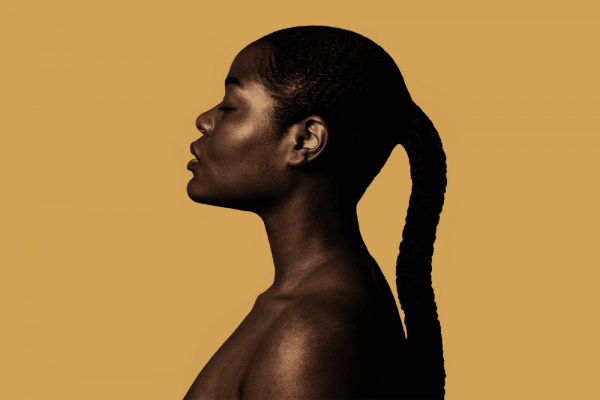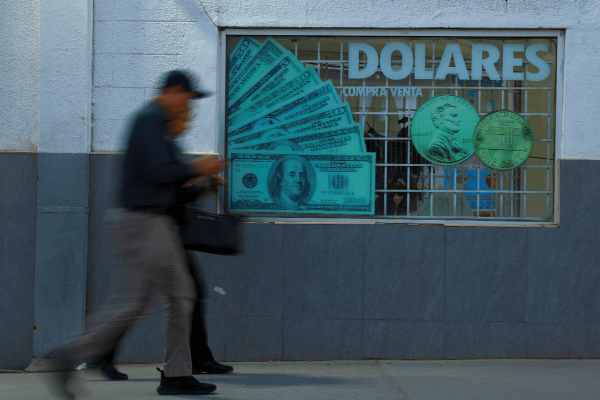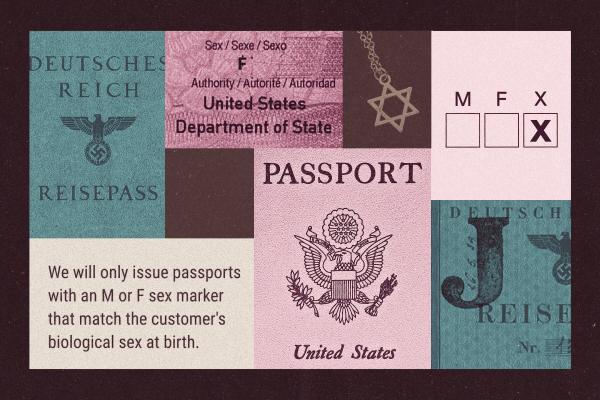I’ve been sitting with the ramifications of being a Black clergywoman in a post-Roe United States.
Let me rephrase that: I have been ruminating on the significance of being a pro-choice Black clergywoman in a post-Roe United States. I understand how this may sound subversive, despite the fact that two-thirds of American women disapprove of the Supreme Court’s decision last Friday to overturn Roe v. Wade. To some people, it’s incompatible that I could be a minister and support someone’s right to choose to have an abortion. Our culture loves binaries so we often feel we must choose which side we are on, regardless of the pain that is inflicted upon those whose voices are drowned out by the cacophony of either/or.
As a Black clergywoman, I see the world through a womanist viewpoint, which means that I center the voices and life experiences of Black women, children, and other marginalized people. This doesn’t mean that I disregard other viewpoints, but rather that I am concerned about those whose voices are often ignored. I am both pro-choice and pro-life. I cherish life. Life is precious whether it is in the womb or outside the womb. I care about the life of the fetus that could become a baby, as well as the mother, the father, and the community. Yet I am not fooled by violent rhetoric that cloaks its control of women’s bodies with a singular concern for unborn babies. The court’s overturning of Roe v. Wade means people who get pregnant no longer have a federal right to decide whether they bear children; it also makes it more difficult for people on the margins to obtain safe and private reproductive health services.
I am afraid. Specifically, I am afraid for Black women. Black women’s bodies have been under attack since first arriving on this continent — during chattel slavery and the Reconstruction era, during legal segregation and beyond. Per the most recent CDC data, for every 100,000 live births to Black mothers, 55.3 Black women die — nearly three times the rate of deaths for white women; this disparity reflects Black women’s unequal access to quality health care, education, economic resources, and other factors that the CDC describes as “social determinants of health.” Roe v. Wade opened the door for women to have autonomy for their own lives — and have it safely. The attack on Black women’s bodies affects people of all socio-economic levels and gender identities, including those who are survivors of rape or incest, medically at risk, living on or at the poverty line, or anyone who just isn’t ready to start a family. Without this right, pregnant people — especially Black and brown women and girls and those living below the poverty line — will be forced to bear children, making their financial situation worse while those with financial means have more options. The mere thought of it is heartbreaking.
As a womanist preacher, I can’t help but feel that at the crux of my anxiousness is that those in power have lost sight of what really matters. Those wielding power would say that life is precious, so we must protect it by any means necessary. Thus, saving the life of a fetus is most important. Yet this laser focus on the fetus ignores the life of the mother and the family. Once born, many babies born to marginalized populations are ignored by those who have the power to help them thrive.
My faith is centered around the fact that Jesus was born a poor, marginalized, Middle Eastern Jew, fully human and fully divine whose mission was to set the captives free and give sight to the blind (Luke 4:18-21). I view Jesus as savior and revolutionary. I believe that God is on the side of the oppressed and wants all to live a life of abundance on earth, as it is in heaven. Jesus, in the words of theologian Obery Hendricks, treated the needs of the people as if they were holy.
What does it mean to treat people’s needs as holy? Hendricks writes in The Politics of Jesus that “Jesus simply taught the men and women who heeded his call to put their love for God into practice by loving their neighbors as themselves.” In the Lord’s Prayer, Hendricks says, Jesus told his followers that we are to treat our neighbors and their needs as holy, “striving to fulfill their needs as if serving God.”
Women and girls’ bodies must be treated as if they are holy — because they are. Trans and nonbinary bodies are holy. Poor bodies are holy. Black women and girls especially need to be treated with respect and dignity, regardless of their social location or economic status; whether they have a college degree or a GED diploma; whether they are quiet or speak with a boldness that makes people uncomfortable. We must treat women and girls’ needs as if they were God’s needs. Women need access to healthcare without the fear that they will go to jail. Women who miscarry need emotional and medical support, not accusatory questions from a doctor or nurse. Women need love manifested in actions, not superficial platitudes. Same goes for the needs of trans men, nonbinary folks, and pregnant people who are poor: Their needs are God’s needs.
Manipulating scripture to ignore or supersede these needs is not treating women’s needs as holy. Shaming, blaming, and criminalizing a woman for making the best choice for her body, her family, and her life is not treating her needs as holy. Forcing rape and incest victims to carry a baby to term, imposing someone else’s moral and theological beliefs on anyone’s body is not treating their needs as holy. Powerful men (mostly white) and the women who support them have once again relegated women to second-class citizenship. The church must act out our love for God by acting out our love upon all humanity. The church cannot be silent. Women, children, and all on the margins of society need the church to be the church, not the opposition. Women and girls’ lives are on the line. Jesus commands us to love God and to love others as we love ourselves.
We have some difficult days ahead. Human rights are under siege. For marginalized groups, the siege is merely intensified. The full range of human emotions have been on full display. Some are rejoicing, some are fearful; others are in an existential crisis.
As people of faith, we understand we all undergo suffering. But in that suffering we know we are never alone. We have the Holy Spirit with us and in us to strengthen and comfort us. Now is the time to lean into our spiritual disciplines. Gird ourselves in prayer and meditation. Be silent. Spend time with those who bring meaning into our lives. Look for beauty in the mundane. There is work to do, but to do the work, we must be spiritually grounded. We must remember the hope of Jesus and the hope of our ancestors that remains with us now.
Inspired by Cole Arthur Riley’s This Here Flesh, in this moment I turn to the fictional lay preacher Baby Suggs from Toni Morrison’s novel Beloved. Born into slavery, Baby Suggs understands the loss of bodily autonomy. Yet she exhorts the people to dance, to laugh and to lament. In her sermon in the Clearing, she doesn’t tell them to live a sin-free life. She doesn’t give dogmatic claims. Instead, Baby Suggs says: “Here in this here place, we flesh; flesh that weeps, laughs; flesh that dances on bare feet in grass. Love it. Love it hard. Yonder they do not love your flesh. They despise it. They don’t love your eyes; they’d just as soon pick em out.”
I encourage you to remember Baby Suggs’ words when you are overwhelmed to prepare you to continue the work of treating people’s needs as holy. Live, love, pray, dance, weep. Then, continue to do the work.
Got something to say about what you're reading? We value your feedback!







